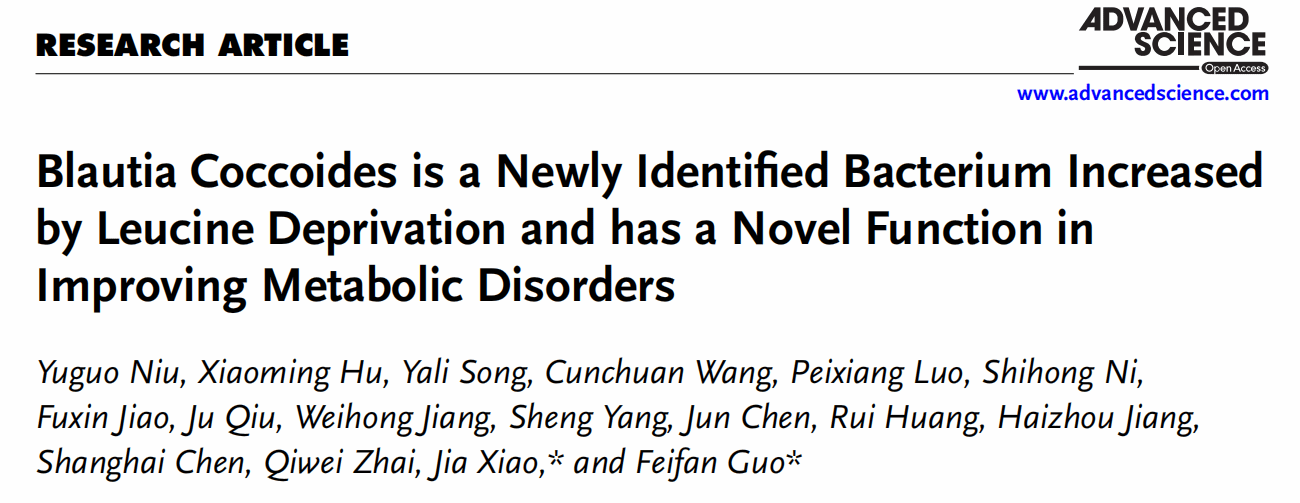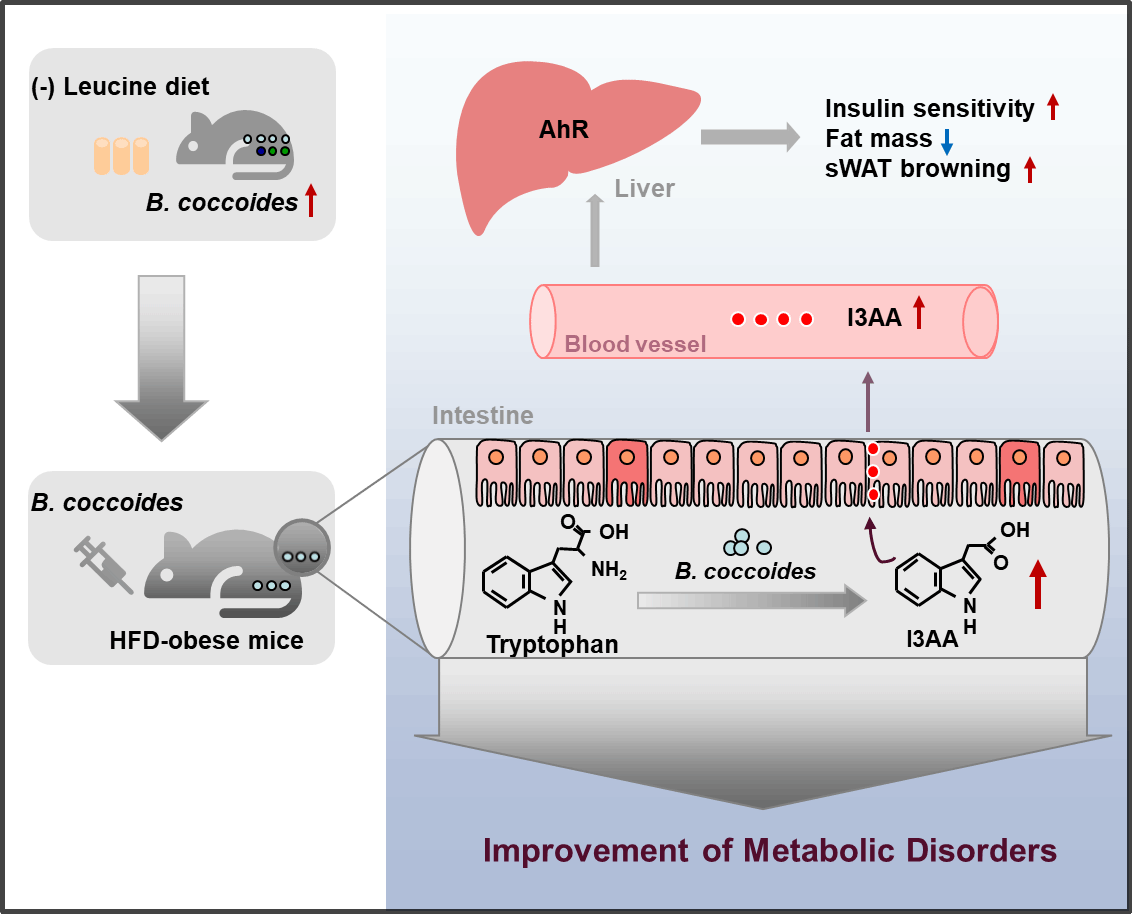Metabolic diseases, such as obesity and type 2 diabetes, severely impact human health and even threaten lives. Therefore, investigating the pathogenesis of metabolic diseases and identifying effective therapeutic targets are of paramount importance. The gut is not only a critical site for nutrient digestion and absorption but also a vital endocrine and metabolic organ. Gut microbiota is closely associated with the development of metabolic disorders. To date, several studies have identified specific gut microbes that influence the onset and progression of these conditions. However, given the vast diversity of gut microbiota, these findings represent only the tip of the iceberg, and the roles and molecular mechanisms of other novel gut microbes in metabolic diseases remain to be elucidated.
Nutrition is a key factor shaping the structure and composition of gut microbiota. Previous studies have shown that short-term leucine deprivation in mice significantly reduces fat accumulation and improves insulin sensitivity, indicating a close relationship between leucine and glucose/lipid metabolism. However, whether the metabolic benefits of leucine deprivation depend on gut microbiota, which specific microbes are involved, and the mechanisms by which these microbes regulate glucose/lipid metabolism in response to leucine deficiency remain unclear.
On May 15, 2024, a collaborative study by Professor Feifan Guo’s team at our institute and Professor Jia Xiao’s team at the First Affiliated Hospital of Jinan University was published in Advanced Science titled “Blautia coccoides Is a Newly Identified Bacterium Increased by Leucine Deprivation and Has a Novel Function in Improving Metabolic Disorders.” This study identified Blautia coccoides is a novel probiotic responsive to leucine deprivation, demonstrating its previously unknown role and molecular mechanism in alleviating high-fat diet (HFD)-induced insulin resistance and fat accumulation.

The researchers first fed antibiotic-treated mice with a leucine-deficient diet. They found that the improvements in insulin sensitivity and reduced fat mass induced by leucine deprivation were blocked, suggesting that these metabolic benefits depend on gut microbiota. Subsequently, fecal microbiota transplantation (FMT) from mice fed a leucine-deficient diet into HFD-fed mice ameliorated HFD-induced metabolic dysfunction, further confirming the critical role of gut microbiota in mediating leucine deprivation induced beneficial effects.
To identify the specific microbes involved in this progress, the researchers performed 16S rRNA sequencing and metagenomic sequencing from leucine-deprived mice, ultimately focusing on Blautia coccoides. Oral gavage with Blautia coccoides in HFD-fed mice significantly alleviated insulin resistance (particularly hepatic insulin resistance) and fat accumulation. Further serum untargeted metabolomics revealed elevated levels of the tryptophan metabolite indole-3-acetic acid (I3AA) following Blautia coccoides administration. Consistently, supplementation with I3AA improved hepatic insulin sensitivity and reduced fat mass in HFD-fed mice. Given that the aryl hydrocarbon receptor (AhR) is a known receptor for I3AA and is widely expressed across tissues, the researchers inhibited hepatic AhR expression in mice subjected to leucine deprivation, Blautia coccoides gavage, or I3AA treatment. They found that the metabolic improvements were significantly reversed upon AhR suppression, indicating that the leucine deprivation–Blautia coccoides–I3AA axis functions in an AhR-dependent manner. Finally, analysis of clinical samples revealed that both Blautia coccoides abundance and I3AA levels were significantly reduced in fecal samples from individuals with metabolic syndrome. Moreover, both Blautia coccoides abundance and I3AA levels were negatively correlated with BMI and HOMA-IR (insulin resistance index).

In summary, this study reveals that leucine deprivation increases Blautia coccoides abundance, which metabolizes tryptophan into I3AA, thereby activating hepatic AhR, which ameliorates HFD-induced insulin resistance and fat accumulation. These findings deepen our understanding of the mechanisms by which leucine deprivation improves glucose and lipid metabolism, providing novel potential therapeutic targets for chronic metabolic diseases such as obesity and type 2 diabetes.
Professor Feifan Guo from our institute and Professor Jia Xiao from the First Affiliated Hospital of Jinan University are the co-corresponding authors of this study. Dr. Yuguo Niu and Dr. Xiaoming Hu from Professor Guo’s team, along with Dr. Yali Song from the First Affiliated Hospital of Jinan University, are the co-first authors.
Reference: https://www.ncbi.nlm.nih.gov/pmc/articles/PMC11095201/